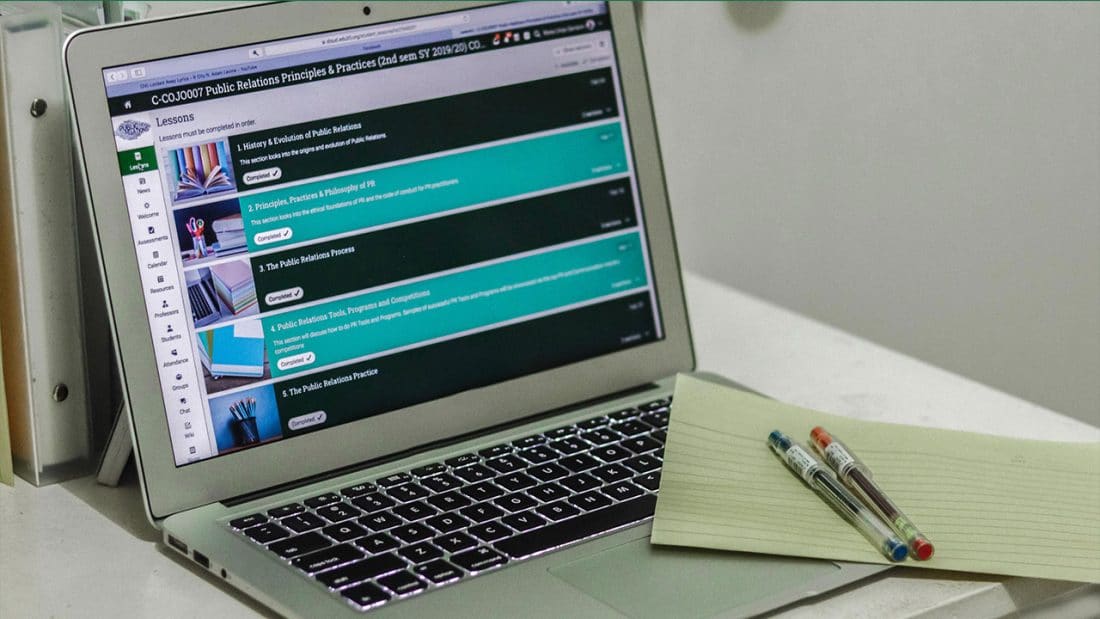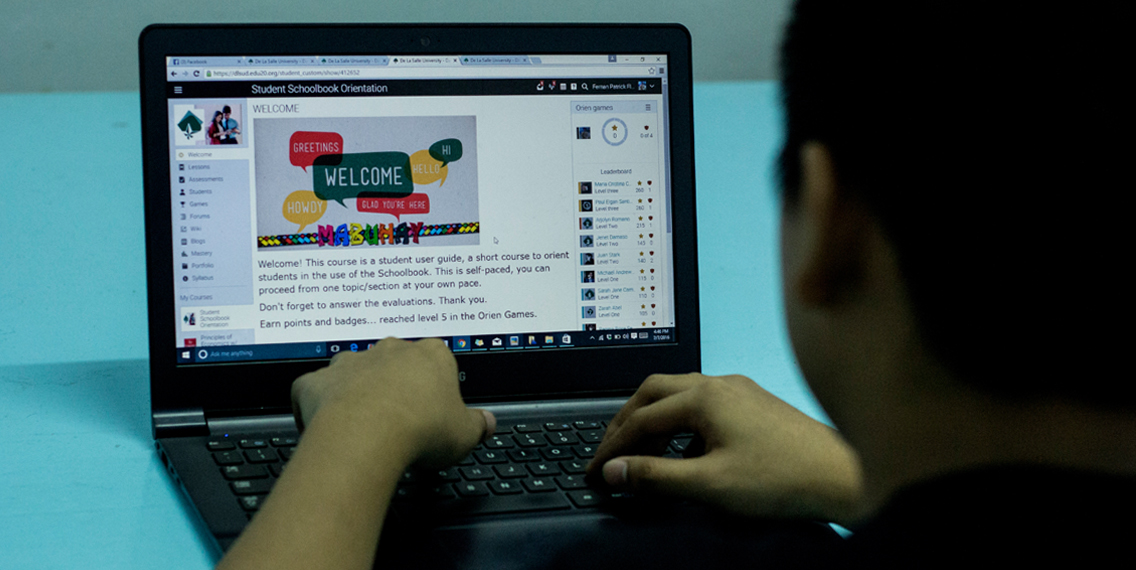CILP explains Schoolbook crash; responds to concerns
The Center for Innovative Learning Programs (CILP) Director Paul Notorio clarifies gathered issues of the students and faculty regarding the University’s Learning Management System (LMS) – Schoolbook.
Notorio clarifies that distance learning is different from online learning. Distance learning is defined by the Commission on Higher Education (CHED) as a type of learning that utilizes non-traditional methods including online, field, and other forms.
In addition, Notorio also mentions that the role of their office is to nurture e-learning and that, “it (CILP) neither has the authority to control faculty to use e-learning nor penalize them for not using or misusing e-learning.”
For the online aspect of distance learning, the faculty has options to use Schoolbook or other online platforms like social media. Despite professors having preferences for platforms, the power to impose the quality of classes is still under the department chair and the college dean.
CILP’s preparedness
In terms of the office’s preparedness for distance learning mode, Notorio shares that they did an online training for the faculty in the academic year 2018-2019’s second semester.
To keep up with the demands amid the global pandemic, CILP resorted to online and live video training, along with uploading online training modules about using Schoolbook and other technologies for education.
CILP monitors the faculty’s utilization of Schoolbook, assigning scores based on how many features were used by the professors. They also provide technical support for faculty, which includes capacity building. However, Notorio emphasizes that the instruments and platforms for the assessments and classes are within the control of the individual faculty.
CILP has also been participating in the Learning Continues Plan by the Office of the Vice Chancellor for Academics and Research (OVCAR), which was already implemented following the Taal Volcano eruption at the beginning of the second semester.
Problems encountered
“During the first week of the suspension of classes, on March 10 to March 16, CILP was overwhelmed with the number of inquiries, most of them from students.” He also says that most of the concerns they received were in Jivochat while others were emailed.
In comparison, there was a large decrease by the second week of suspended classes. While, on the 24/7 Tech Support provided by Cypher Learning, Notorio observed that only three faculty have used it since March 10 and that no student used it.
Those who want to hold synchronous sessions requested assistance to set up Microsoft Teams. Meanwhile, 87 percent of full-time faculty used Schoolbook since the implementation of distance learning mode, as other professors chose to utilize Facebook Messenger and other social media platforms.
Distance learning mode measures
To deal with the challenges of distance learning, CILP released Enhanced Schoolbook Support, which employed the use of social media platforms like Facebook, Youtube, and Twitter. Along with this expanded support, they also updated the format of the Live Support into a Webinar series.
In addition, Notorio lists down common reasons why students encounter Schoolbook crashes:
- The account may be an archived one. To solve this, reactivate your account with the help of CILP.
- It may be the students’ first time accessing their account or they forgot their password. The single sign-in with Office 365 means that this problem is handled by the Information and Communications Technology Center (ICTC).
- The creation of multiple or new accounts. This only happens when a student changes their email address in their profile. CILP has disabled the editing of profiles to solve this. Use of the Safari browser may cause multiple login problems. By using other browsers or downloading the NEO app, login will work.
- Heavy data or internet usage when logging in. CILP solved this by removing the high definition pictures at the login page.
As of April 7, the OVCAR released an updated version of their academic procedures, Learning Continues Plan 2.0 Post-Quarantine Period. Also, in response to the extended quarantine period, CILP modified its webinar series from five days a week to two days a week. This schedule will continue until the semester comes to an end or when onsite classes resume.




